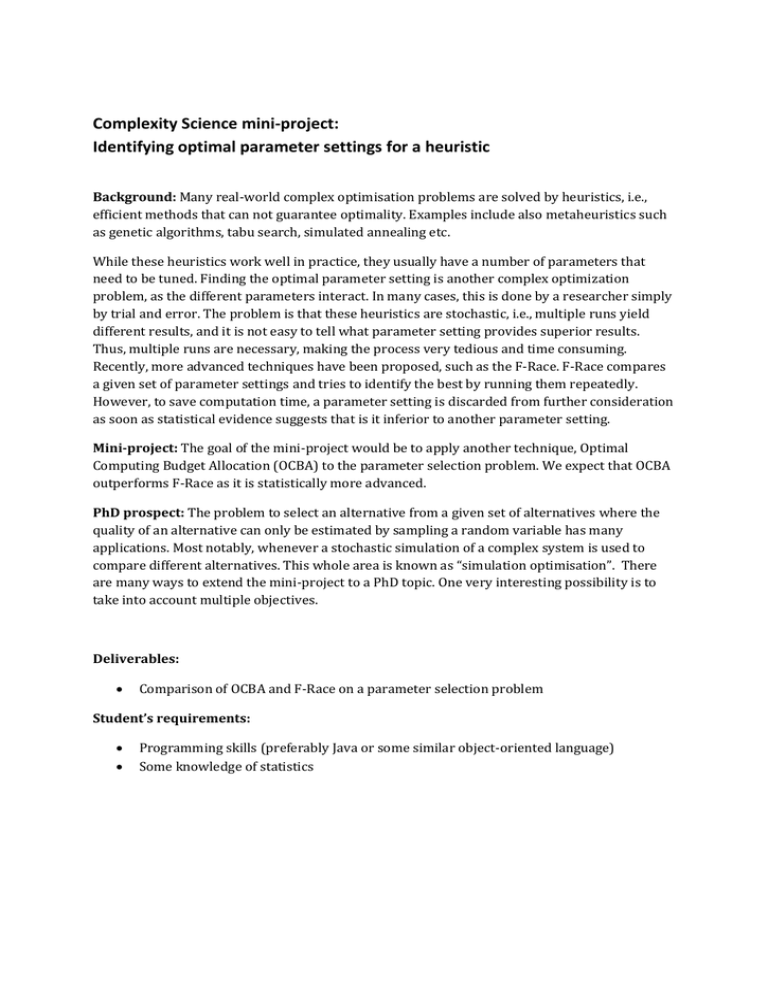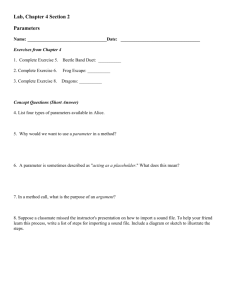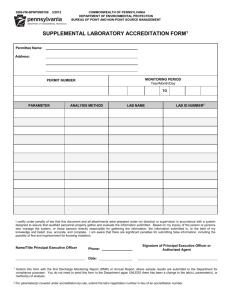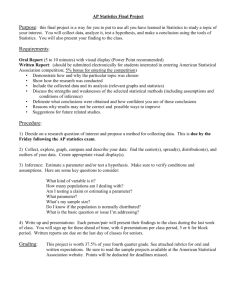Complexity Science mini-project: Identifying optimal parameter settings for a heuristic
advertisement

Complexity Science mini-project: Identifying optimal parameter settings for a heuristic Background: Many real-world complex optimisation problems are solved by heuristics, i.e., efficient methods that can not guarantee optimality. Examples include also metaheuristics such as genetic algorithms, tabu search, simulated annealing etc. While these heuristics work well in practice, they usually have a number of parameters that need to be tuned. Finding the optimal parameter setting is another complex optimization problem, as the different parameters interact. In many cases, this is done by a researcher simply by trial and error. The problem is that these heuristics are stochastic, i.e., multiple runs yield different results, and it is not easy to tell what parameter setting provides superior results. Thus, multiple runs are necessary, making the process very tedious and time consuming. Recently, more advanced techniques have been proposed, such as the F-Race. F-Race compares a given set of parameter settings and tries to identify the best by running them repeatedly. However, to save computation time, a parameter setting is discarded from further consideration as soon as statistical evidence suggests that is it inferior to another parameter setting. Mini-project: The goal of the mini-project would be to apply another technique, Optimal Computing Budget Allocation (OCBA) to the parameter selection problem. We expect that OCBA outperforms F-Race as it is statistically more advanced. PhD prospect: The problem to select an alternative from a given set of alternatives where the quality of an alternative can only be estimated by sampling a random variable has many applications. Most notably, whenever a stochastic simulation of a complex system is used to compare different alternatives. This whole area is known as “simulation optimisation”. There are many ways to extend the mini-project to a PhD topic. One very interesting possibility is to take into account multiple objectives. Deliverables: Comparison of OCBA and F-Race on a parameter selection problem Student’s requirements: Programming skills (preferably Java or some similar object-oriented language) Some knowledge of statistics


